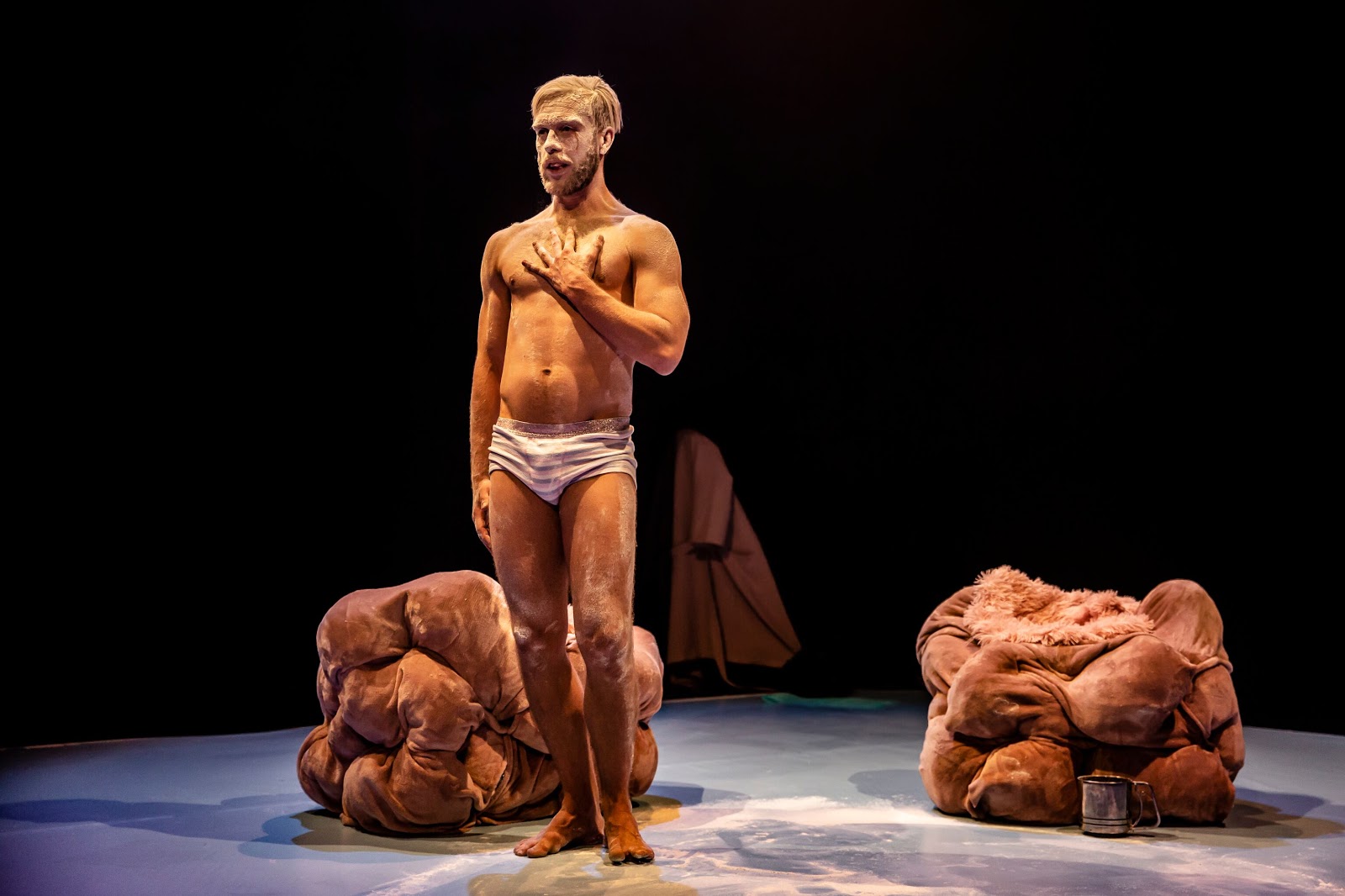By Emma Sullivan
Joel Bray’s ‘Daddy’ took the audience through an immersive sugar coated experience of his struggles with cultural identification and his attempts to fill that seemingly impossible void.
I’m not going to lie, when I read ‘The show uses confectionery including copious amounts of powdered sugar’ as a warning, I was a little concerned for what I had signed myself up for. I had no idea why a show called ‘Daddy’ was part of the Yirramboi festival.
The performance space was filled with pastel=coloured dry ice and a pink fluffy island that transported me into a different dimension. Bray was perched on the island reminiscent of a Renaissance sculpture, as if carved by Michelangelo himself. There was a regal air in the atmosphere, until you noticed his metallic pink budgie smugglers staring right at you.
What started off lighthearted and even comedic with an over-the-top (but amazing) set and Bray’s dramatised movements, quickly began to address bigger issues at hand. Bray spoke about his family’s history with sexual abuse and abandonment which he tied to his struggles of commitment in the present day. The piece embodies the fate of Aboriginal Australia and his sense of disconnect from this culture being a white-skinned, fair-headed Wiradjuri man.
Bray’s movements were thoughtful and measured but incredibly jarring all together. He thrashed his body time and time again, to the point of the audience’s discomfort. His ever-growing frustration of not being enough — of a man, of a son or enough Aboriginal — was articulated through spoken word and wonderfully assisted with movement.
Weaving through the audience and relying on us to move around with him, at times it was easy to forget the heavy topics he was addressing. He had us participate in a full on dance rave and I even got to smother one-hundred-and-thousand filled butter all over his back.
These moments helped to sweeten Bray’s personal struggles but also a very important social issue at hand. It certainly caught my attention and opened my eyes up to how real the injustice for the aboriginal community can be.


